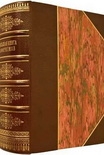Gluck by Diana Souhami (most interesting books to read .TXT) 📗

- Author: Diana Souhami
Book online «Gluck by Diana Souhami (most interesting books to read .TXT) 📗». Author Diana Souhami
Penzance had a makeshift cinema by 1921 and Gluck’s picture ‘All the World’s Darling’ shows Mary Pickford on its screen, ringletted and grinning, in one of her little girl parts, Rebecca of Sunnybrook Farm or Daddy Long Legs, ‘with her anonymous audience gazing up’. A few years later, Mary Pickford and Douglas Fairbanks came, amid huge publicity, to London. Their on- and offscreen lives were everyone’s affair. They had founded United Artists and lived in ‘Pickfair’, a Hollywood fantasy house. Gluck wrote to offer Mary Pickford her painting. She was summoned to the Dorchester. The World’s Darling hardly gave the picture or its creator a glance but, said Gluck, ‘white talons with blood red nails came out to seize it’. Gluck snatched it back and left.
A Lamorna woman paid half-a-crown a go to hear her sing and Gluck did a caricature of herself, striding off with hurricane lamp and back-pack for this assignment. She did a commissioned portrait of a Lady Egmont, a family friend who lived in Exmouth and was also keen on music:
Oh Ludovici! [Gluck wrote to her brother] Imagine what happens when I attempt to sing. The parrot screeches and whistles, the canary trills on one note for hours, Lady E sings snatches of opera and rum tiddle tum songs in a high nasal flat soprano, Gracie hums or sings through her tightly shut lips, her baby gurgles and crows, we are like a mad futurist orchestra.8
They were happy days. Days of work, of bathing in the sea or walking on the moors, nights of parties with like-minded people, and plenty of encouragement to egg her ambitions on. She went with Craig to the horse races at St Buryan and painted scenes of spectators in cold weather watching the races, crowding the jockey, or playing ‘toss halfpenny’. She got as brown as a berry, cooked her own food and lived ‘a completely savage existence’ until she missed the Russian Ballet too much, the spectacle of Nijinsky and Pavlova, the concerts, theatre and ‘civilization’. Then she went back to London.
Despite his pain, her father made her freedom possible. In October 1918 he opened a bank account in her name, paid in £100, introduced her to the manager of the St James’s Street branch, and
told her we would like her to let us know on the first of each month how much she had spent and we would at once pay in that amount to her credit. I said we don’t want details of how you spend the money, but only the monthly totals. She was very pleased with the suggestion …9
He also opened the first of a series of trust accounts on her behalf. She could not touch the capital, of £6,500, but would get the investment income – an assured six pounds ten shillings a week. ‘I am only doing this’, he wrote to his son (6 November 1918),
to protect her even against herself and also against me, as I won’t take the risk of her suffering financially, in case I feel inclined, through passion or otherwise, to stop her allowance. I won’t trust myself and therefore intend to get it all settled … I told her I would allow her that amount and even more if she wanted it as my and mother’s sole idea was to make her happy.
The terms of this, and revised trusts in her name, precluded her from ever having access to the capital. ‘I want to avoid the risk of her marrying some scoundrel who might marry her for her money and then lead her a bad life.’10 In later years, Gluck resented the financial restrictions of these trusts, but at the time she was more than pleased.
Some of the senior business partners, particularly her uncle Isidore, thought the arrangement over-generous and likely to inspire future individualists in The Family to believe rebellion paid. Gluck’s father had to be diplomatic to get it approved. He met Isidore in Eastbourne for a private talk: ‘… I shall of course be very guarded and impress him, not wicked or bad but just the trend of the times, of a new womankind, I don’t propose to cry stinking fish to anyone.’11
By the end of the First World War Gluck was wealthy by the standards of the time. She had a guaranteed income of £6.10s a week and a guaranteed monthly balance in her account of £100. Her father, mother, brother and uncles Samuel Gluckstein and John Joseph were her trustees. She had run away from home but had not, in terms of financial dependency, got further than any of the other members of The Family. With the exception of her brother, The Family thought her behaviour and dress outrageous and the company she kept disreputable. Her father was cut to the quick, her mother simply waited for the phase to pass, but there was no way they would be provoked into denying support to their own daughter.
The Meteor blamed Craig for Gluck’s errant ways:
Hig showed me her work from Cornwall and it was very fine, but she was in trousers and that velvet coat and when I see her dressed like that I am sure she has a kink in the brain and I go heartsick. I am sure when she leaves the pernicious influence of Craig all will be well.12
Even suffragettes wore long dresses and respectable hats – as for that matter did Craig. But still they asked Gluck not to bring her to their home in Avenue Road and complained she could eat any elephant out of house and home and always went to bed too late. When Gluck wrote from Cornwall that Craig had sprained her leg, or had the flu, Gluck’s parents tacitly ignored all mention of her. They hoped that she, and Gluck’s kink in the brain would ‘Please God’, pass. ‘It certainly is nothing but a silly mania’ wrote her father to Louis (12 October 1918),
for her





Comments (0)